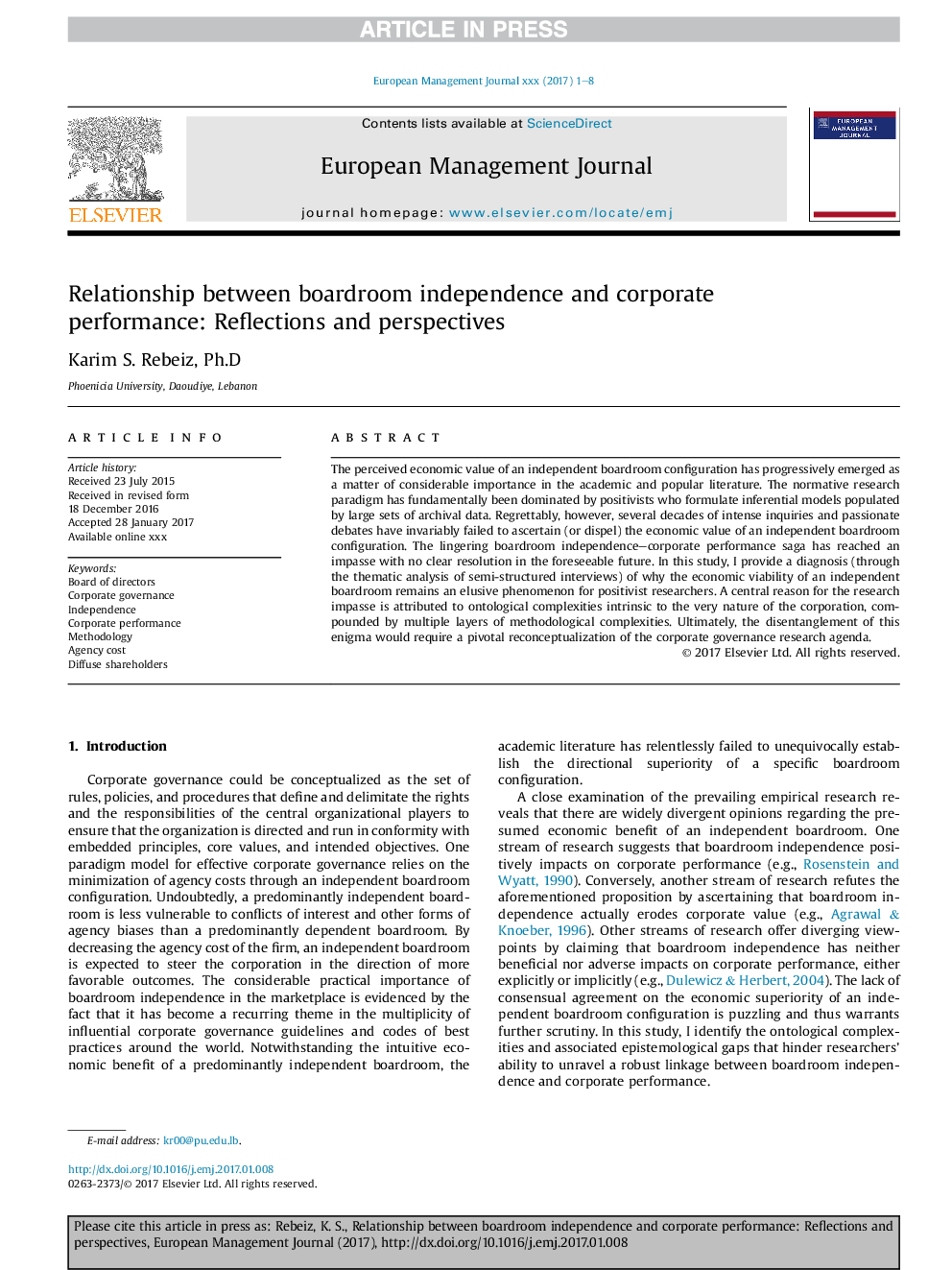| Article ID | Journal | Published Year | Pages | File Type |
|---|---|---|---|---|
| 7423591 | European Management Journal | 2018 | 8 Pages |
Abstract
The perceived economic value of an independent boardroom configuration has progressively emerged as a matter of considerable importance in the academic and popular literature. The normative research paradigm has fundamentally been dominated by positivists who formulate inferential models populated by large sets of archival data. Regrettably, however, several decades of intense inquiries and passionate debates have invariably failed to ascertain (or dispel) the economic value of an independent boardroom configuration. The lingering boardroom independence-corporate performance saga has reached an impasse with no clear resolution in the foreseeable future. In this study, I provide a diagnosis (through the thematic analysis of semi-structured interviews) of why the economic viability of an independent boardroom remains an elusive phenomenon for positivist researchers. A central reason for the research impasse is attributed to ontological complexities intrinsic to the very nature of the corporation, compounded by multiple layers of methodological complexities. Ultimately, the disentanglement of this enigma would require a pivotal reconceptualization of the corporate governance research agenda.
Keywords
Related Topics
Social Sciences and Humanities
Business, Management and Accounting
Business and International Management
Authors
Karim S. Ph.D,
